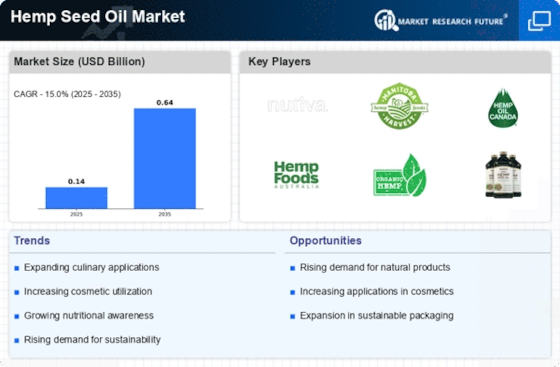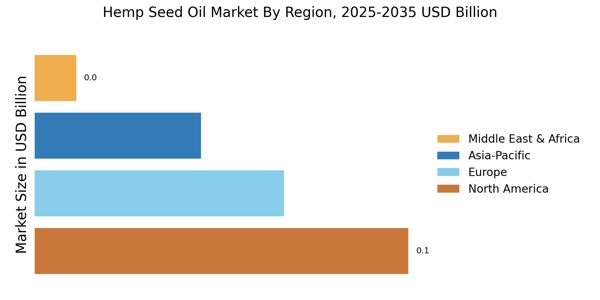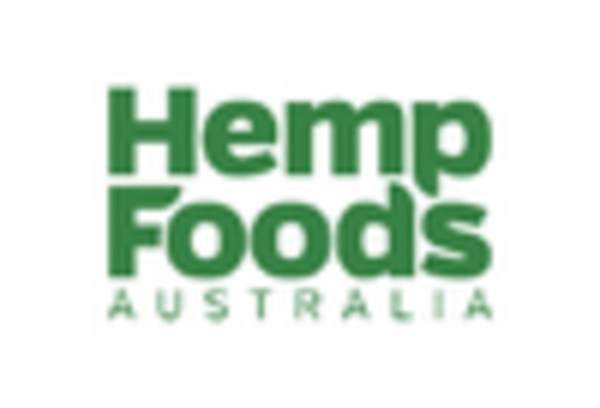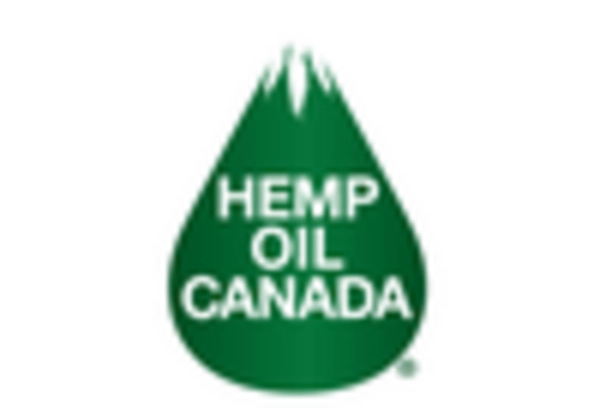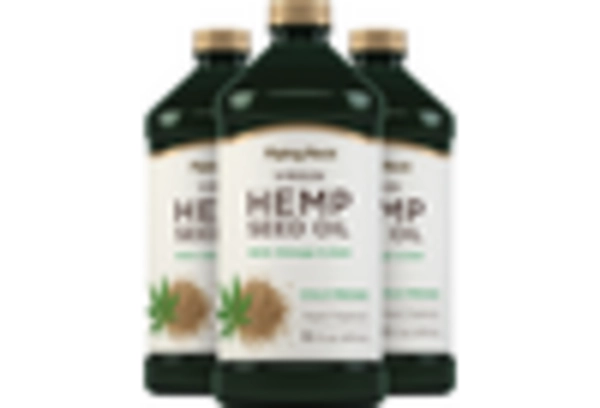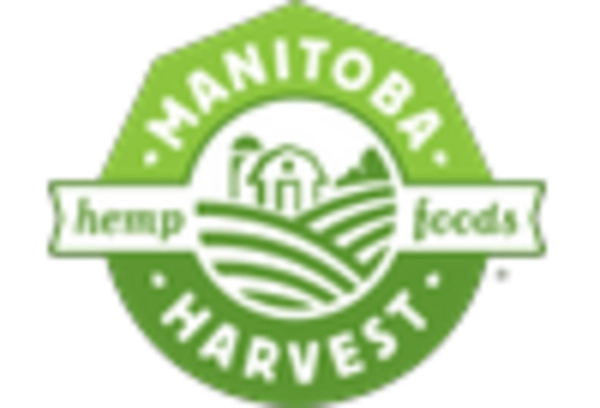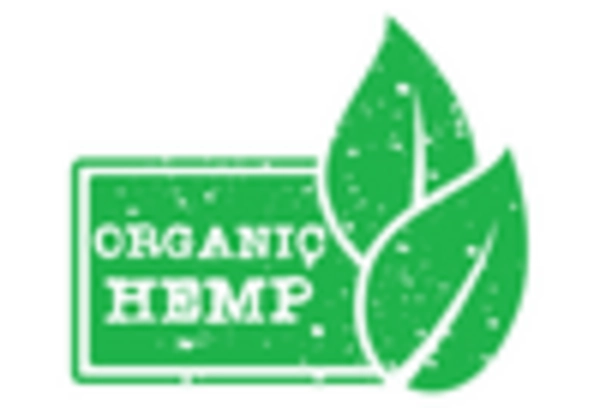Cosmetic Industry Integration
The Hemp Seed Oil Market is witnessing integration into the cosmetic sector, driven by the oil's moisturizing and anti-inflammatory properties. Many cosmetic brands are incorporating hemp seed oil into their formulations, recognizing its potential to enhance skin health and provide hydration. The Hemp Seed Oil Market is projected to reach significant valuations, and the inclusion of hemp seed oil is likely to contribute to this growth. As consumers gravitate towards natural and organic beauty products, the Hemp Seed Oil Market stands to gain traction, appealing to a demographic that prioritizes clean beauty and sustainable sourcing.
Health Benefits of Hemp Seed Oil
The Hemp Seed Oil Market is experiencing a surge in demand due to the increasing awareness of the health benefits associated with hemp seed oil. Rich in essential fatty acids, vitamins, and minerals, hemp seed oil is recognized for its potential to improve heart health, enhance skin conditions, and support overall wellness. Recent studies indicate that the oil may help reduce inflammation and promote cardiovascular health, which aligns with the growing consumer preference for natural health products. As consumers become more health-conscious, the Hemp Seed Oil Market is likely to see a significant uptick in sales, particularly among those seeking alternative remedies and dietary supplements.
Regulatory Support and Legalization
The Hemp Seed Oil Market is positively influenced by increasing regulatory support and the legalization of hemp cultivation in various regions. As governments recognize the economic potential of hemp, they are implementing policies that facilitate its growth and distribution. This regulatory environment not only encourages farmers to cultivate hemp but also fosters innovation within the Hemp Seed Oil Market. With more players entering the market, competition is expected to intensify, potentially leading to advancements in production techniques and product offerings, thereby expanding the market further.
Rising Popularity of Plant-Based Diets
The Hemp Seed Oil Market is benefiting from the rising popularity of plant-based diets. As more individuals adopt vegetarian and vegan lifestyles, the demand for plant-derived oils, including hemp seed oil, is on the rise. This oil serves as a valuable source of protein and essential fatty acids, making it an attractive option for those seeking to enhance their nutritional intake without animal products. Market data suggests that the plant-based food sector is projected to grow substantially, which could further bolster the Hemp Seed Oil Market as consumers increasingly seek versatile ingredients that align with their dietary choices.
Sustainability Trends in Food Production
The Hemp Seed Oil Market is aligned with the growing sustainability trends in food production. As consumers become more environmentally conscious, they are seeking products that are sustainably sourced and produced. Hemp cultivation is known for its low environmental impact, requiring fewer resources compared to traditional crops. This aspect resonates with consumers who prioritize eco-friendly products. Industry expert's indicate that the demand for sustainable food options is on the rise, which could enhance the visibility and acceptance of hemp seed oil as a responsible choice in the food industry, thereby driving growth in the Hemp Seed Oil Market.


